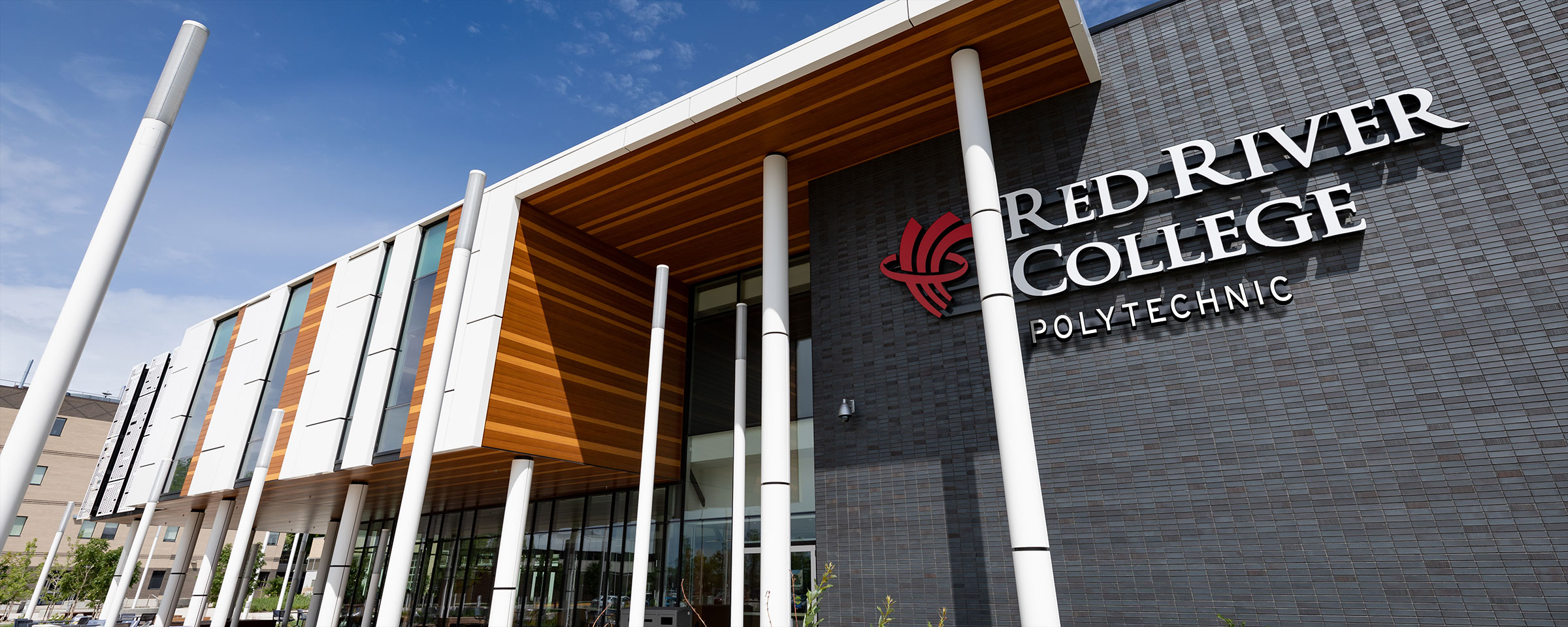Residential Decorating Students Partner with IKEA on Co-Create Spaces
Today, a group of 24 Red River College’s (RRC) students unveiled five displays they created in partnership with IKEA.
The in-store displays are an iconic part of the IKEA experience and are different in every location, based on localized market research. They’re designed to address the needs of a specific person, place and price-point.
Josephine Pulver — an interior designer and Residential Decorating instructor at RRC — saw a chance to connect with the industry and turn IKEA’s design process into a final project for her students.
“Last year I placed two of my students at IKEA for their practicums and got to meet some of their staff, and saw the opportunity to set up a project with them,” says Pulver. “The mission is to get students involved, and show the industry what our students are doing at RRC.”
Five displays designed and built by Pulver’s students are now on display at IKEA’s Winnipeg location. The five rooms — called Co-Create Spaces — were unveiled over the weekend, and will remain in-store for the next three years.
Through the Co-Create project, students were able to work off-campus and immerse themselves in the process from start to finish. IKEA provided the research, room dimensions, budget and list of products, then the students broke into groups and began sketching solutions for better everyday living.
“We start from inspiration and develop a concept, which we present to our client, then we get our client’s feedback and get them involved in the progress of the plan development,” says Pulver. “We then carry that through to the completion of the project.”
“We have a specific way of working that comes with having been here for a while, so [the students’] designs suggested different ways to use our products that we may not have thought of before,” adds Andrea Dreilich, communication and interior manager at IKEA.
The Co-Create project marked the first time these students were able to take their drawings and translate them into real spaces. As Pulver notes, communicating directly with an actual client comes with lessons that can’t be reproduced in a classroom. The confined space and timeline limitations (students only had two weeks to build the spaces) afforded additional opportunities for learning.
“They’ve experienced what it’s like to work with a contractor, for example, and how on top of things you have to be. It’s also little things like remembering to bring your plans to the site … that will hopefully give them a step up when they join the workforce,” she says.
One of IKEA’s current interior designers is a recent graduate of the same program. Kerri Harpman completed her workplace practicum at IKEA in 2018 and was hired directly after graduating. She was recently selected to go to Coquitlam, B.C., for six weeks to join a team of specially selected interior designers from across Canada, and helped redesign the IKEA store there.
“I feel like I was well prepared. My instructors were awesome, and I was able to take things that I learned, like space planning, and apply it and see my work come to life,” says Harpman.
Here in Winnipeg, Harpman helped oversee the build-outs at IKEA. She says passing on her knowledge to a group willing to learn and adapt was a great experience, and also a reminder of how far she had come after only one year in the industry.
“Designing a room isn’t all about what it looks like. The room has to be functional,” she explains. “In a big store like IKEA, we have certain rules to follow and you can’t just change things, so it can be hard to wrap your head around that as a student. In school, you hand your plans in and think it looks good, but when you have to implement it, you learn a lot.”
Dreilich says the partnership is beneficial for all involved.
“We get an opportunity to see what up-and-coming designers are working toward, and see this as an opportunity to connect with fresh talent,” she says. “The students get to put it all together in real life, which is not typical in a design program.”
Pulver says the project wouldn’t have come together so quickly without interest and buy-in from IKEA, and internal support from RRC.
“Things like this set Red River College apart,” she says.

